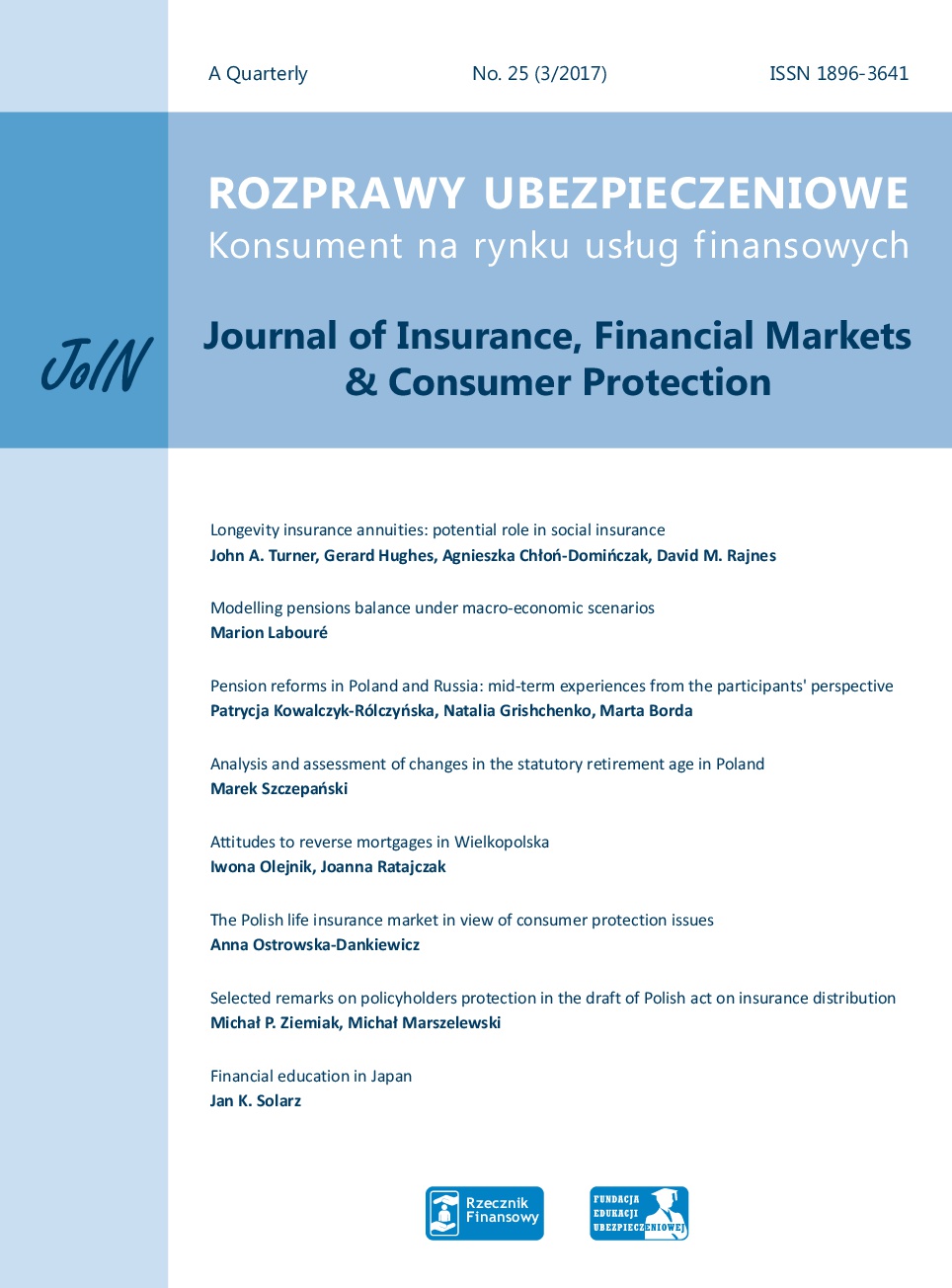Longevity insurance annuities: potential role in social insurance
Longevity insurance annuities: potential role in social insurance
Author(s): John A. Turner, Gerard Hughes, Agnieszka Chłoń-Domińczak, David M. RajnesSubject(s): Gender Studies, Government/Political systems, Financial Markets
Published by: Rzecznik Finansowy / Fundacja Edukacji Ubezpieczeniowej
Keywords: longevity; annuities; insurance;
Summary/Abstract: The aim of this study is to analyse longevity insurance annuities as a possible addition to social security programmes. The research method is to analyse the strengths and weaknesses of longevity insurance provided by the private sector and by government, and to survey and analyse examples of longevity insurance benefit programmes that countries have already established. Longevity insurance annuities are deferred annuities that start payment at an advanced age at which a substantial proportion of the birth cohort has died. In developed countries, that would mean that these annuities would start for people in their early eighties, but when social security programmes were started in many countries, the age at which longevity insurance annuities would begin was substantially younger. This study finds that originally, public pension programmes in a number of countries were structured as a longevity insurance programme, with roughly 50% of those entering the workforce surviving to receive the benefits because of relatively high benefit eligibility ages. Over time, however, as life expectancy has improved, the benefits these programmes provide have slowly transformed into benefits that most people entering the work force ultimately receive. This paper argues that reintroduction of a longevity insurance benefit as part of public pensions could be an important policy in particular because this benefit is generally not provided by the private sector. These annuities would benefit some older retirees, particularly in countries with modest public pension benefits, but the private sector has problems in providing them, particularly when they have to be provided on a unisex basis. A longevity insurance benefit is desirable in countries that rely on defined contribution pensions, where some workers take their benefits as phased withdrawals, and thus risk outliving their benefits if they live substantially longer than their life expectancy. This paper surveys countries that provide this type of benefit. The addition of these benefits to social security may be particularly desirable as part of a reform where other changes being made to maintain solvency are resulting in reduced generosity of benefits.
Journal: Rozprawy Ubezpieczeniowe. Konsument na rynku usług finansowych
- Issue Year: 3/2017
- Issue No: 25
- Page Range: 3-21
- Page Count: 19
- Language: English

